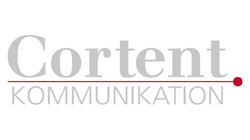The German Mittelstand
Family-run businesses can’t afford to lose their good name.

Family-run businesses in Germany have built themselves an excellent reputation; they are known for their willingness to implement sustainable policies and work towards long-term objectives. This fortifies them and enables them to weather out periods of adversity and hardship without losing their way. The resilience of German family-run concerns was seen in their survival of the recent depression triggered by the collapse of Lehman Brothers in 2008.
In the follow-up to a survey involving 4,500 large-scale family businesses that posted an annual turnover of 50 million Euros, the German Confederation of Industries (BDI) fleshed out this trend with numbers. During 2009 and 2010, the worst two years that the German economy had had to face since the end of WW II, companies led by their owning family managed to increase their quota of equity capital from 33.6 to 34.5 percent. According to a report published by Deutsche Bundesbank, the quota of equity capital in 2010 expressed as an average of all German companies was less than 30 percent.
It comes therefore as no surprise that investors are very keen about stock-market-listed, family-run companies. However it is a fact that in a three-year long comparison, the German DAX index went slightly higher than the DAXplus Family 30 – the index reserved for family companies. Yet, investment security in hard times is a factor that can (still) make investors feel comfortable about making some small sacrifice. Responsibility is something else and so is temptation. Family-run companies often own two-thirds of voting rights in shareholders’ meetings which empowers them to appoint a Supervisory Board in their own image and likeness, and to do as they please – at least for as long as the law allows them to.
Many family-run businesses are able to perfectly satisfy whatever demands the majority of their stakeholders may make of them, and in so doing take on certain social responsibilities. DAX-listed Henkel and Merck; Fielmann and KWS of MDAX and SDAX are excellent examples. Indeed, a recent report published by the SUSTAINALYTICS rating agency was lavish in its praise of Henkel’s commitment to social sustainability and the excellent results it has achieved in Corporate Governance and awareness of environmental factors.
Garment manufacturer Ahlers, by contrast, where the founder’s family still holds a quota in excess of 75% of the company, still has some way to go. A glance at the assets posted to the balance sheet reveals an art collection, of little use to the company’s core business, ‘sold’ to the shareholders as a safe investment. There is also the eye-catching, generous remuneration of the managing director. It would have been interesting to see some details about the state of the workers in their Sri Lanka facility who make up more than one third of the group’s employees.
By and large, German companies that are led by the owning family enjoy a high-profile reputation not only among financial investors but also with the public at large. This is a trump card not to be frittered away, especially during lean years when these companies are should be setting the example of “best practice” and offering stability to stakeholders.















